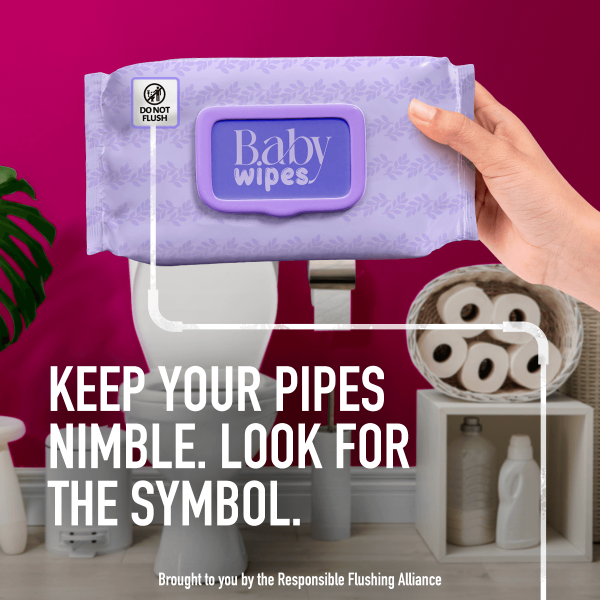Always "Flush Smart"

Just because something is small enough to pass through the toilet pipe doesn’t mean it should be flushed. Any items flushed other than toilet paper can create costly clogs in your home pipes, our City wastewater pumps and pipelines as well as our wastewater treatment plant.
The U.S. Environmental Protection Agency encourages all Americans to only flush toilet paper, not disinfect wipes or other non-flushable items that should be disposed of in the trash.
By doing your part and flushing responsibly, you can help protect your home, community and the environment.
Know What You Shouldn’t Flush
Your toilet is not a trashcan. Non-flushable items can cause a lot of damage to private property, City infrastructure and the environment when flushed. Some commonly flushed items that should never be flushed include:
- Baby and cleaning wipes.
- Condoms.
- Cotton swabs.
- Dental floss.
- Facial tissue.
- Feminine hygiene products.
- Incontinence products.
- Medication.
- Napkins.
- Paper towels.
- Teeth whitening strips.
When in Doubt, Throw it Out!
If you’re not 100% sure an item can be flushed, throw it out. Don’t risk the consequences by flushing something that isn’t meant to be flushed.
Also, look for the “Do Not Flush” symbol on the packaging. This symbol often helps you double-check whether an item is not flushable.
Keep Fats, Oils and Grease Out of Your Drains!
Remember that not everything should go down the drain! Never pour fats, oils or grease down the sink drain or garbage disposal. These can clog pipelines and cause sewage spills. For more information, including how to properly dispose of fats, oils and grease, see Preventing Sewer Spills.
By being smarter and following good practices, we can create cleaner and safer communities, protect the environment and save money on repairing infrastructure.
More Information
- Your Sewer Plumbing System (City Public Utilities)
- Flush Smart California (Responsible Flushing Alliance)
- Proper Disposal of Residential-Generated Medications and Pharmaceuticals (City Environmental Services)
- Think Blue San Diego (City Stormwater)
- Service Line Warranties (City’s preferred service line warranty partner)

